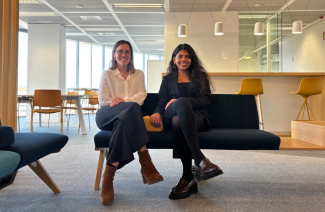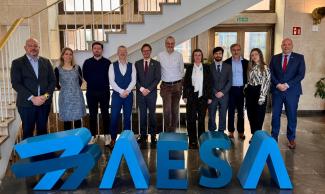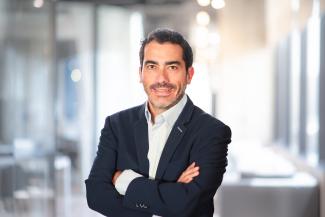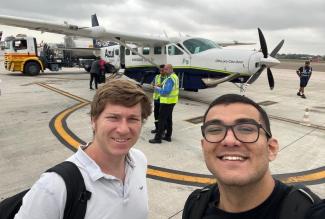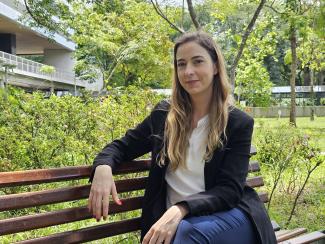In the context of International Women’s Day, at ALG we celebrate diversity and the impact of female voices within our team. On this occasion, we had the privilege of interviewing two women from our consulting team, Núria Besora and Madhuri Lakshmi Golla, whose careers not only reflect their skills and professional dedication but also the richness that cultural diversity brings to the workplace.
Both agree that, while the consulting sector has made progress in terms of inclusion, there is still work to be done to achieve fair representation at all levels of the organization. As a company, we share their vision that diversity not only enhances decision-making but also drives innovation and growth.
At ALG, we strive to create an environment where women can reach their full potential, promoting equal opportunities and fostering a culture in which every voice is valued. We firmly believe that talent has no gender and that leadership should be based on capability and vision.
Their testimonies remind us that progress toward equity does not rely solely on corporate policies but also on a broader social and cultural shift. Work-life balance, breaking stereotypes, and increasing the visibility of female role models in traditionally male-dominated sectors are key aspects to accelerating this progress.
As a company, we are committed to continuing to promote initiatives that foster an inclusive and diverse environment, where female talent not only has a place but plays a leading role in shaping the future.
We spoke with Núria and Madhuri to gain firsthand insight into their experiences and reflections on the role of women in consulting, the challenges that remain, and the opportunities emerging in an increasingly diverse environment. Through their testimonies, we explore how cultural diversity enriches teamwork, how the presence of women in the sector has evolved, and what measures are key to further advancing equity. Their perspectives provide us with valuable insight into the impact of female leadership and the road ahead.
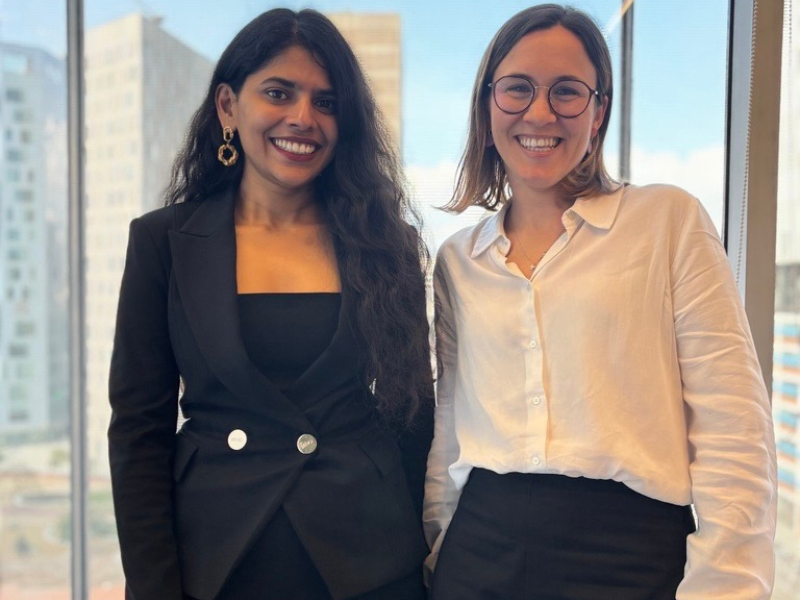
1. How would you summarize your journey these years with ALG? What challenges have you faced, and what key learnings would you highlight?
Núria Besora: My journey at ALG began in 2021 after accumulating nine years of previous professional experience. I first worked for over six years in engineering—a highly male-dominated sector—and then spent three years in strategic planning consulting for cities.
I had known about ALG for some time, as I knew people who had worked here, and I always had a high regard for the company. When the opportunity arose to join the logistics and multimodal transport team focused on Africa, I was highly motivated and did not hesitate. I had previously worked in several African countries and was eager to return to an international environment.
The opportunities here follow an upward trajectory. To this day, I have always had growth opportunities ahead of me—not only in terms of role or position but also linked to new projects, new countries, new sectors, and emerging trends. Overall, ALG is a highly stimulating and intellectually enriching environment, largely due to the brilliant and ambitious people who work here. This constantly pushes me to improve and give my best. Finally, I would highlight the opportunity to travel. Since joining, I have visited six African countries, some on multiple occasions—places I might never have had the chance to visit otherwise.
However, these opportunities also come with challenges, which I personally experience as a rollercoaster. Not only the technical or professional challenges linked to project complexity and the pursuit of excellence but also the personal impact and work-life balance.
2. Do you feel that being a woman has influenced your professional career? Have you found barriers or, on the contrary, special opportunities?
Núria Besora: In general, I would say no, neither positively nor negatively.
On one hand, if I analyze the external factors that may have influenced me, I believe that throughout my professional experience, my superiors (both men and women) have always treated me as a professional, evaluating me based on my skills, aptitude, attitude, and results, never on my gender. I have always felt that I had, and continue to have, the same opportunities and challenges as my colleagues, most of whom are men.
On the other hand, regarding internal factors, it is true that at times I have experienced impostor syndrome, which may be due to sociocultural factors or unconscious biases related to being a woman. However, I am aware of these thoughts and actively work to overcome them. Additionally, the strong support of the people around me has helped me confidently tackle every professional challenge I have set for myself. Moreover, I was raised with the belief that with hard work and dedication, I can reach any goal and that no one is inherently worth more or less than I am. Lastly, the achievements I continue to accumulate help me face new challenges with increasing self-confidence.
3. How do you think diversity in teams impacts decision-making and the success of a company?
Madhuri Lakshmi Golla: Our brain is said to form increasingly complex neural connections as we experience life and is richer with the different connections functional and structural, I believe diverse teams have similar characteristics. Every individual is unique as is and add different perspectives to the team, having a more diverse team adds fuel to this dynamic. Everyone has an opportunity to work with and understand different approaches, enriching the cross neural experiences, and our capabilities, so strictly speaking its pure science that success is one of the outcomes having all other parameters constant.
4. How has the role of women in the business world evolved in recent years? Do you think we are moving in the right direction?
Núria Besora: In recent years, we have seen significant progress in the inclusion of women in the business world. More and more women are taking on leadership roles, entering traditionally male-dominated sectors, and participating in strategic decision-making. For example, in 2024, the presence of women on the boards of directors of companies listed on the IBEX 35 reached 39.2%, very close to the minimum target of 40% set by Spain’s Parity Law. However, there is still work to be done. For instance, if we look at the set of companies listed on Spain’s Continuous Market, in 2023, women held 34.5% of board positions, and only 42 out of the 117 listed companies met the 40% target. Additionally, the presence of women in chair positions within IBEX 35 companies was 12.1% in 2024, reinforcing the fact that persistent and gradual barriers remain as positions become more senior.
Beyond women’s presence in decision-making roles, if we look at the business world as a whole—especially in more technical or technological sectors—we can see that there is still room for improvement. For example, at ALG, women currently represent 26.5% of the business unit, primarily due to the low percentage of women pursuing university degrees in Engineering, Technology, or Mathematics. As an example, at the Polytechnic University of Catalonia, only 31.9% of students are currently women, having grown very weakly and, in my opinion, insufficiently in recent years (only 2.8 percentage points since the 2020-2021 academic year). This is not a matter of ability but rather of stereotypes, lack of role models, and misconceptions about the impact of these professions, which influence young women’s career choices. It is precisely at this stage that we need to work more to later attract more female talent into these professions.
In conclusion, we are moving in the right direction, but the pace of change must accelerate and be sustained over time. Achieving this requires not only public policies and laws but also the real and effective removal of additional barriers and challenges for women.
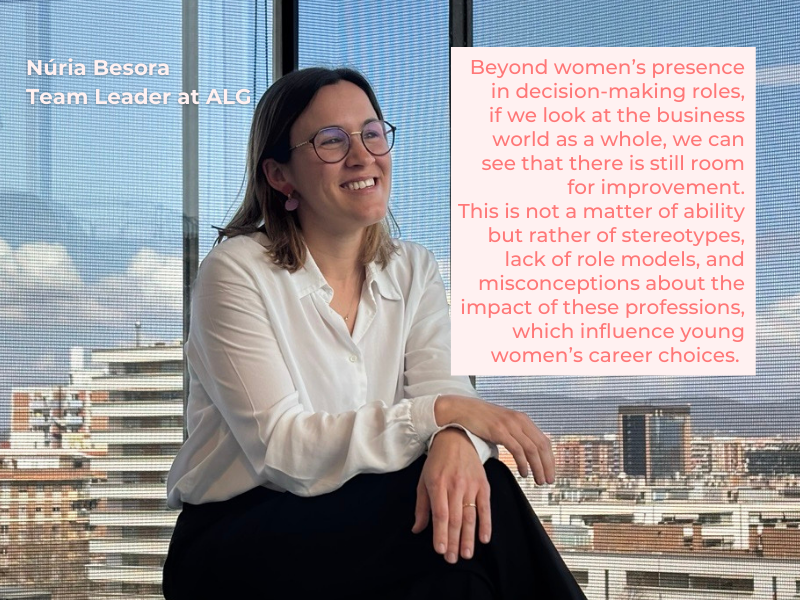
5. How do you see the evolution of women in the consulting sector? Do you think it is still a predominantly male-dominated field?
Madhuri Lakshmi Golla: Progress is relative, I am happy that there have been consistent efforts from corporates including mine, but also quite aware of the fact that there are miles ahead of us. While the number of women in the sector has seen great improvement, there’s still a large gap in the gender ratio at leadership positions across the sector and it is still a male dominated field. The ratio of women is changing but not as rapidly as it can, and we have a vested responsibility to help shape the future and have more representation. One of my favorite mantras is "Empowered women empower women", I do every bit I can in any room, community I am a part of to be the one who empowers others while also being inspired and learn from the ones that paved the path we are on today.
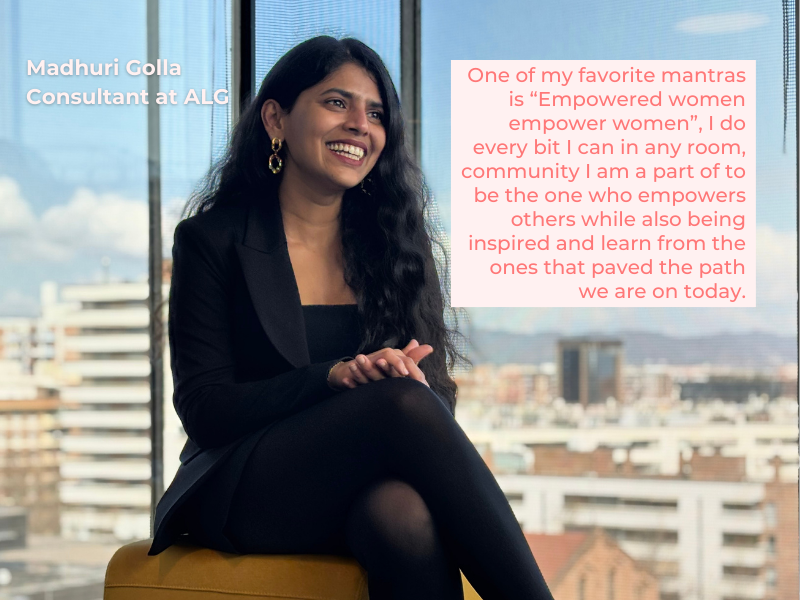
6. What barriers do you think still exist for more women to access leadership positions in companies?
Núria Besora: In my opinion, these barriers go beyond the business sphere; they are more social, cultural, and, in many cases, structural. The primary barrier is the disproportionate burden in personal responsibilities between men and women. While shared responsibility has advanced significantly, many women still take on a larger share of family and household responsibilities, limiting their availability for certain professional opportunities. This situation is particularly challenging for women with young children, as this stage often coincides with a crucial period in their professional careers when accumulated experience facilitates access to management positions. As a result, many women limit their career progression. For example, in Spain in 2023, 93% of requests for reduced working hours to care for children or dependents were made by women. This leads me to my next question: Can a woman working reduced hours hold certain leadership positions? I would like to say yes or believe that it could be possible, but in reality, based on my experience—not just at ALG, but in previous companies—it is very difficult. Women in these situations compete with colleagues, mostly men, who can dedicate more time to their professional careers, putting some women at a clear disadvantage. This is especially relevant in strategic consulting, where dedication is crucial to achieving the quality standards we strive for.
7. Do you think cultural diversity in the workplace adds unique value? Does ALG promote an inclusive environment for you?
Madhuri Lakshmi Golla: Yes, I believe cultural diversity adds great value to a workplace and ALG does a really good job bringing cultural diversity to our workplace. Ever since I started, I have been part of multiple discussion rooms, e-meets daily lunches and every discussion I’ve had every time I have spoken to a colleague from a different country or from the same country brought up with different cultures, it enriches the experience every day. For an office to be an incubator of such spirit is what you would ideally want at a workplace and to have it is a privilege. Like for example, every Friday we have breakfast together and you could speak to anyone you could walk up to the CEO and that kind of creates a dialog and space where you feel that your thoughts are heard and your ideas appreciated, that I believe is a great job done by ALG.
8. As a mother and a professional, how do you manage the balance between your work and personal life? What strategies have worked best for you?
Núria Besora: Balancing my professional and personal life is undoubtedly my greatest challenge, as I am the mother of a nearly six-year-old daughter and a four-year-old son. I must say that in my case, I am privileged—I am fortunate to have a strong support network. My husband and I receive immense help from our children’s four grandparents, which allows me to dedicate myself to my work at ALG with the intensity I deem necessary or to travel when required.
ALG offers work-life balance measures, such as the ability to work remotely two days a week, flexible working hours, and consideration of my role as a mother when planning travel. However, without external support, I would not be able to combine my professional and personal responsibilities as I currently do while also enjoying both aspects of my life. Learning to accept that I cannot always be everywhere and prioritizing effectively is a challenge in itself.
From here, I want to highlight the efforts of working mothers and the sacrifices we make in many areas to give our best for ourselves and for the benefit of the company.
9. What advice would you give to other women who, like you, decide to start a professional career outside their home country?
Madhuri Lakshmi Golla: Home country shapes the way you think and forms the basis of your view of the world, so I believe it is a great opportunity for one to understand world from different lenses. When I had the opportunity to come to Barcelona for my education, I grabbed it. I jumped and squealed at this opportunity. From there to working in Barcelona and working on African projects based in Europe being an Asian is quite the cultural mix and quite a way of looking at the world from different cultural and contextual lenses. Some of the sharpest minds are brightened by cultural influences I´ve heard and I believe it to be very true. So, when I hear from anyone about having this opportunity, I suggest them to take it and you will not regret it.
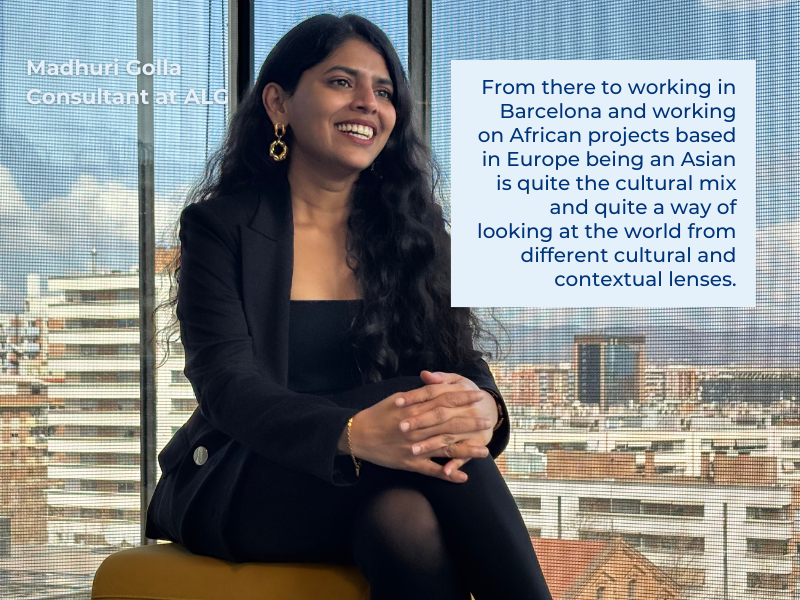
10. What message would you give to future generations of women who want to develop professionally in the business world?
Núria Besora: My message is clear: trust in your talent and do not set limits for yourself.
To achieve this, preparation is essential, so take advantage of all learning opportunities available to you. Additionally, surrounding yourself with people who inspire and support you, both personally and professionally, has been key for me. These two elements have helped me take on new challenges and face, with varying degrees of success, the well-known impostor syndrome that so many women around me experience. If seeking external support helps to fully believe in yourself, do not hesitate to do so if possible.
Furthermore, let’s look to the role models around us—our mothers and grandmothers. Even if they worked in very different fields from the business world, they demonstrated leadership, overcame challenges, and faced great difficulties in times when things were far from easy and with far fewer resources than we have today. Similarly, let’s support and learn from our sisters and friends, move forward together, pursue our dreams, and celebrate each other’s successes. Absorb everything around you and use it to empower yourself.
Let’s remember that businesses need diverse talent, and that includes more women in all kinds of positions. Women represent approximately 50% of the available talent. Leadership has no gender—what truly matters are skills, vision, and the ability to generate impact.

We know that diversity is not just a value but a driving force for change and growth. Madhuri’s experience shows us how exposure to different cultures broadens our perspective and strengthens our ability to adapt, while Nuria highlights the importance of female role models in inspiring future generations. Their voices reinforce our belief that diverse talent brings more innovative solutions and a more comprehensive vision to the challenges of the sector. That is why, at ALG, we continue to promote collaborative and inclusive environments where every individual, regardless of gender or background, can fully develop and contribute their talent to transforming the world of transportation and infrastructure.

